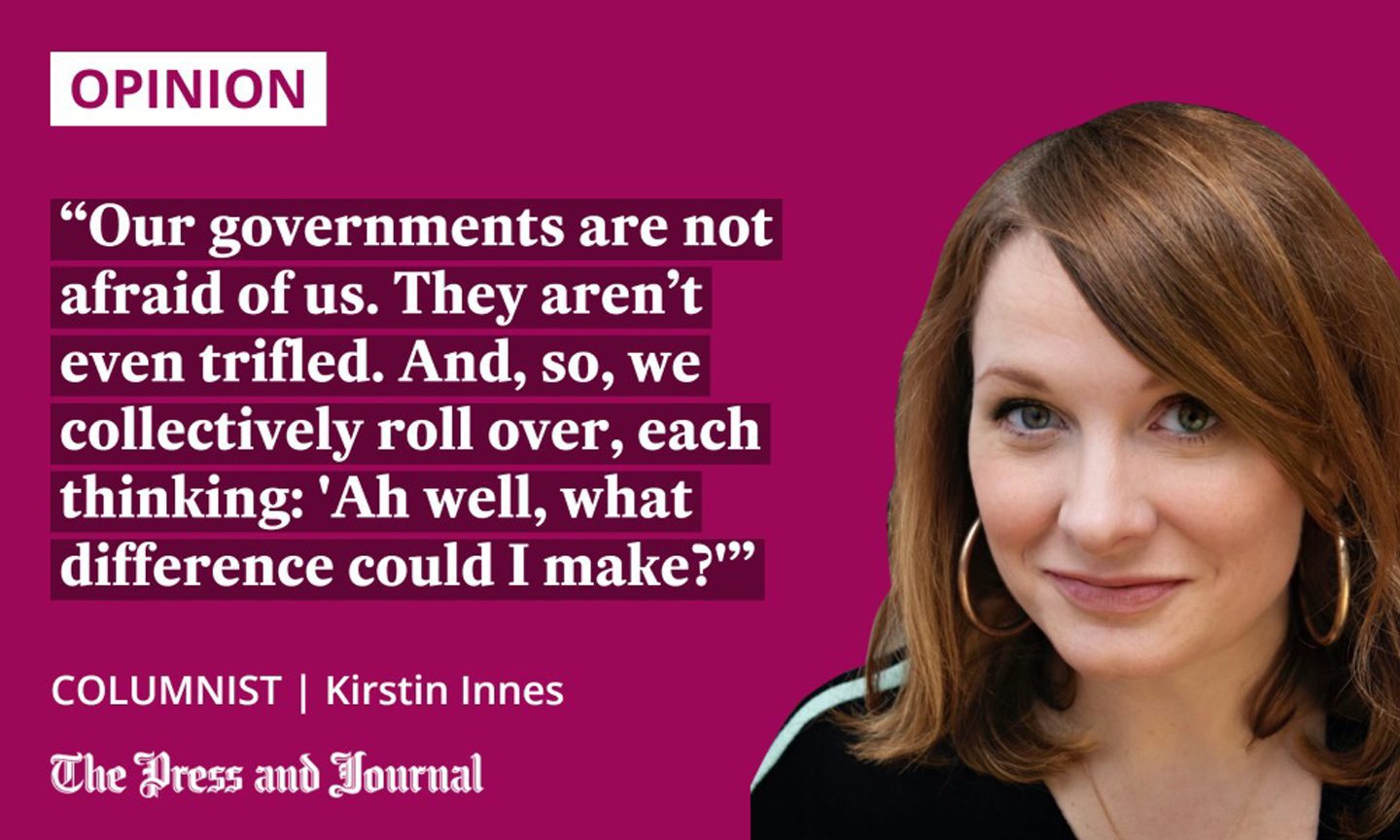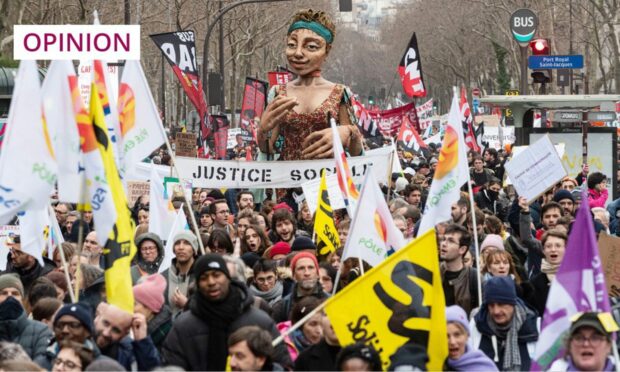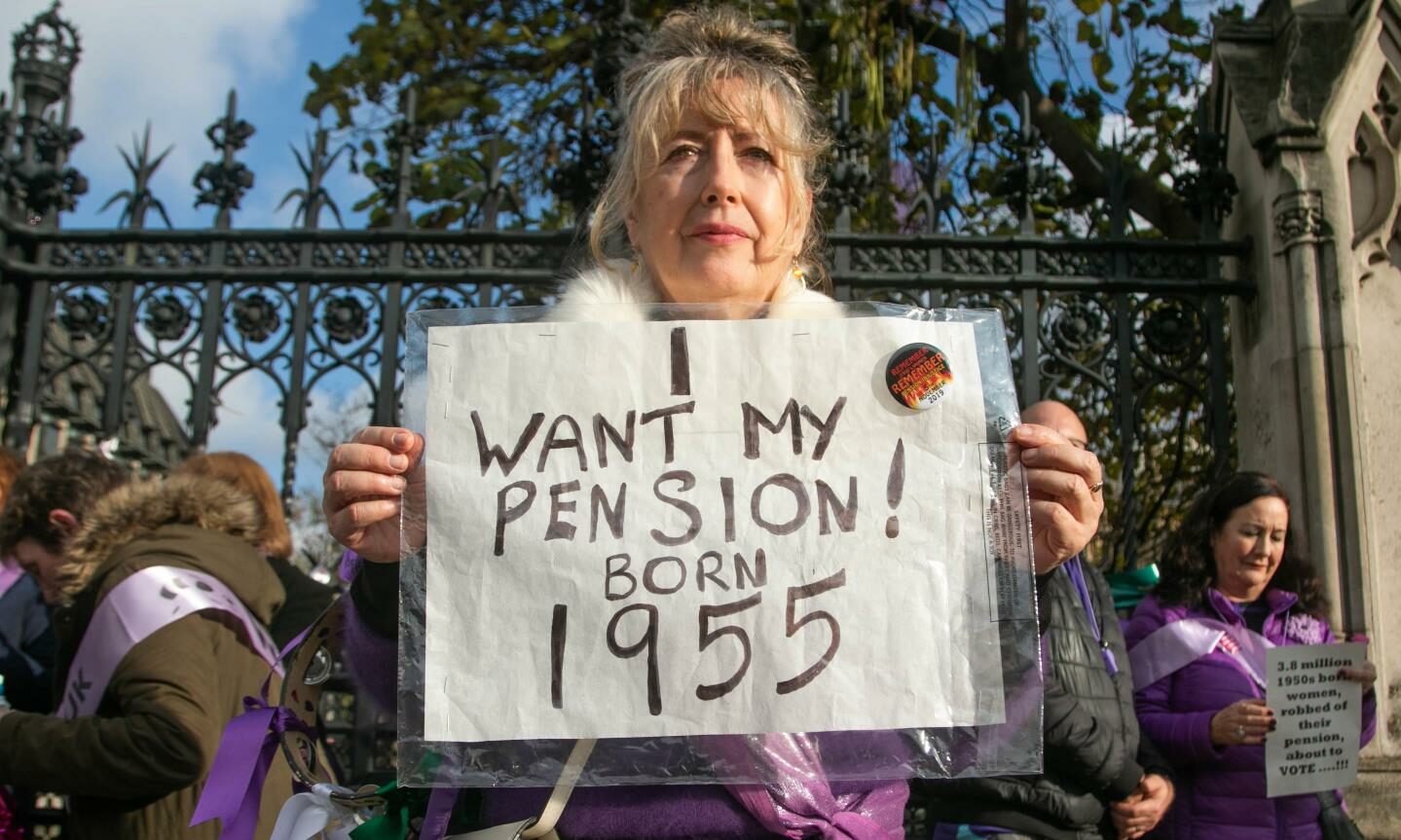Standing together and speaking with one voice has proved a powerful tool for people in France, writes Kirstin Innes – when will the UK do the same?
Last week, I was in Paris. My second novel has just been translated into French, and I had been brought over by my publishers (thanks to the generosity of Publishing Scotland) to visit bookshops across the country and talk to readers and the media.
Plans change, though, and the day I was supposed to set off for Grenoble happened to be January 31, which was also the day of the second general strike in a fortnight across the country. (There has since been a third, on February 7, and there will be two days of national mass action this weekend.)
A total of 1.3 million workers in cities, towns and villages across the country went on strike. There were simply no trains running. So (and try not to cry too hard for me), I stayed in Paris.

We hear a lot in the UK these days about workers “bringing the country to a halt” and “walking out”. Both phrases are value-laden and heavy with connotations.
“Walking out” suggests impetuousness, petulance and a sudden abandonment of duty, rather than the carefully considered reaction to unworkable circumstances which almost always precedes strike action. “Bringing the country to a halt” implies that the workers are not themselves part of the country, but a malign force from outside.
Paris had not been brought to a halt. The tourist attractions were closed, as were schools and most of the Metro lines, but cafes were open and the people of Paris were definitely moving.
When my book editor had suggested that I might like to go and “see the strike”, I’d been confused. Was he proposing to take me to a picket line? Which one?
The French citizenry have no intention of losing their fight
Fundamentally, I didn’t understand what a general strike looked like. I was imagining separate places of work, picketed by the members of their various unions – not 87,000 people, united in their anger towards their leaders, marching towards the seat of government to tell them so.
This strike wasn’t just any single union’s issue, like the RMT protesting unsafe working conditions, or a nurses’ union campaigning for fair pay. The French are protesting the attempt by Emmanuel Macron’s government to raise the state pension age from 62 to 64.
When this was explained to me, my first impulse was, honestly, to laugh. Sixty-four? Ours is currently 66, I told my astonished colleagues. It’s going up to 67 by 2027. It’ll definitely be 70 by the time I’m claiming. But that’s nothing to boast about, is it?
I’ve since looked at the timeline of our pension reform; I had to – like most people my age and below, I wasn’t familiar with it. It’s been drifting upwards since 2010, when women (60) were moved inline with men (65); that was achieved in 2018. By 2020, the pension age was brought up again, to 66, and it’s still going. It won’t come back down. We lost that fight; we didn’t even begin it.
The French citizenry have no intention of losing their fight. It is ingrained with them; their workers’ rights are so much better than ours because they have united and fought hard for every single one. Perhaps it’s historical memory of overthrowing a monarchy rather than meekly tolerating one for centuries? They know how, as a people, to make themselves ungovernable.
Yes, half a million public sector workers went on strike in the UK last week, but still at workplaces only, and on the same day that the government pushed through controversial legislation which will restrict workers’ ability to strike.
Our governments are not afraid of us. They aren’t even trifled. And, so, we collectively roll over, each thinking: “Ah well, what difference could I make?”
Standing together and speaking with one voice
The pictures I’ve seen since of the march I attended have almost all concentrated on what must have been a relatively brief moment towards the end of the day, when someone let off a red smoke flare in front of the Senate.
I don’t blame the photographers; it looks dramatic. You go with the drama. But, it also looks dangerous – like fire or arson, at first glimpse – threatening, scary. What I encountered out there on the march was something very different indeed.
Huge march against proposed rise in minimum retirement age from 62 to 64 in France gets underway in Paris.
The 8 main unions are leading a day of action across the country.
Could be biggest protest in 🇫🇷 in 13 years.
President Macron’s govt says the change is “non-negotiable” pic.twitter.com/nmX7ykDl2r
— Nick Beake (@Beaking_News) January 31, 2023
Young women, skipping arm in arm, wearing Statue of Liberty headbands, singing an angry song, the only word of which I could make out was “Macron”. Older, chic Parisians, wheeling bikes with protest signs attached. Twenty-something workies, still in their boots, cracking cans open on the roofs of bus shelters and toasting the marchers.
Student communists waving flags like they were in Les Miserables. Forty-something parents with their kids on shoulders. Old men in tweed bunnets, jabbing their cigarettes in the air. All of these people, together: united.
Quite simply, it was solidarity. We need it, folks. That ability to say, with one voice: enough, you don’t have the right to do this to me – to us. How do we, as a country, develop that, and quickly?
Kirstin Innes is the author of the novels Scabby Queen and Fishnet, and co-author of non-fiction book Brickwork: A Biography of the Arches


Conversation